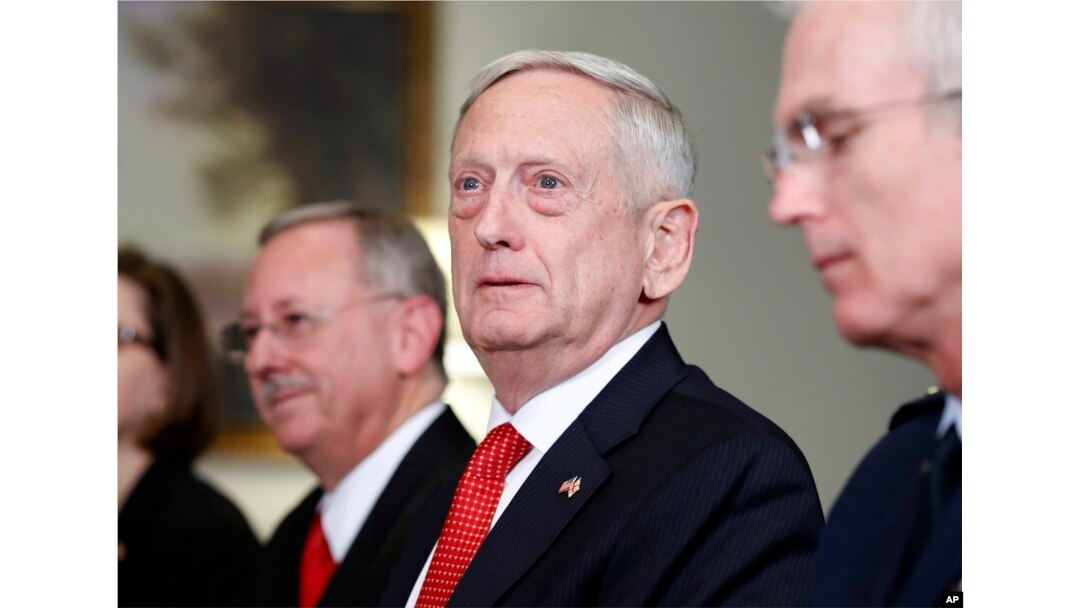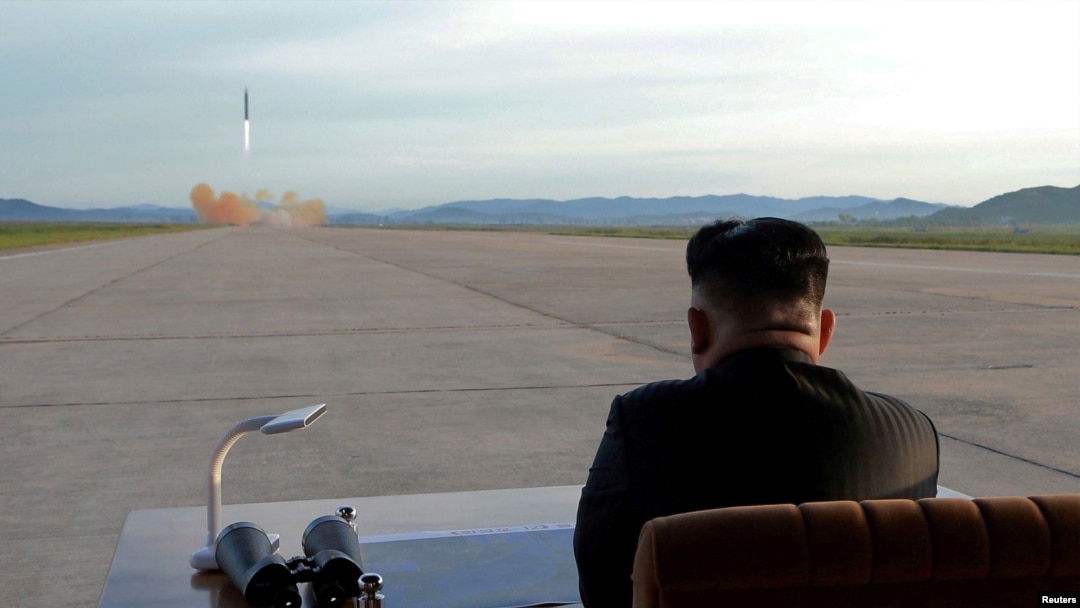North Korea says it successfully tested a new intercontinental ballistic missile that can reach the continental United States.
The regime announced the news early Wednesday on state-run television. The statement said after watching Tuesday's successful launch of the Hwasong-15, North Korean leader Kim Jong Un "declared with pride that now we have finally realized the great historic cause of completing the state nuclear force."
WATCH: Reactions to N. Korea ICBM test
Your browser doesn’t support HTML5
North Korean ICBM Test Condemned Internationally
The 53-minute flight of the Hwasong-15 began at a launch site from Sang Ni, north of the capital, Pyongyang. The North said the missile reached a maximum height of 4,475 kilometers, and flew 950 kilometers before falling into the Sea of Japan, in Japan's exclusive economic zone, which is sovereign Japanese territory.
Hours after the North Korean ICBM test, U.S. President Donald Trump told reporters at the White House that "it is a situation we will handle," without being specific. But Trump did say the U.S. approach toward North Korea has not changed.
Defense Secretary Jim Mattis said this missile flew longer and higher than any previous North Korean test launch. He called it part of North Korea's efforts to build missiles that can "threaten everywhere in the world." Mattis said North Korea is a danger to world peace.

Defense Secretary Jim Mattis listens to a reporter's question during a meeting with Georgian Defense Minister Levan Izoria at the Pentagon, Nov. 13, 2017, in Washington.
The Union of Concerned Scientists says the missile would have enough range to strike anywhere in the continental United States, including Washington. But it says such a missile would be unable to carry a nuclear warhead because the weapon would be too heavy.
Japanese Prime Minister Shinzo Abe has asked for an emergency meeting of the U.N. Security Council and vowed to protect the Japanese people. "We can never accept this violence and have strongly protested to North Korea," Abe told reporters.
The U.N. Security Council has confirmed it will meet at 4pm Wednesday.
Trump spoke to Abe by telephone. The White House says both leaders agree North Korea's actions undermine North Korea's own security and further isolate it from the international community.
Trump also talked with South Korean President Moon Jae-in who, along with Trump, said the North's missile launches are a grave threat not only to Korea and the United States, but the entire world.
President Donald Trump, left, speaks as South Korean President Moon Jae-in looks on during a joint news conference at the Blue House in Seoul, South Korea, Tuesday, Nov. 7, 2017.
Britain's U.N. Ambassador, Matthew Rycroft, called the launch "another reckless act by a regime that is more intent on building up its ballistic missile and nuclear capability than it is on looking after its own people."
This was the first North Korean missile test since September and the first since the United States put the North back on its list of state sponsors of terrorism. A pause in missile tests after a spate of them earlier this year led some analysts to speculate that North Korean leader Kim Jong Un was holding out a sliver of goodwill toward the U.S.
Some experts believe he had decided to freeze test flights at least until after February's Winter Olympics in PyeongChang, South Korea.
"We should have known better than to think there was any particular conclusion to draw from 60-plus days of quiet," Robert Manning of the Atlantic Council told VOA. He said getting worked-up every time Kim Jong Un makes a move is dumb and makes Kim look like a victim and the one who is threatened.
President Donald Trump poses for a portrait in the Oval Office in Washington, April 21, 2017.
"Trump's hysterical, ridiculous tweets and taunting of Kim were key instigators in creating this pseudo-crisis atmosphere," Manning said.
The latest North Korean launch comes as the United States and South Korea are preparing a five-day joint exercise called “Vigilant Ace” from December 4-8 with thousands of military personnel and more than 230 aircraft, including six F-22 Raptor fighter jets deployed to South Korea for the first time.
Pyongyang routinely condemns such military drills using belligerent language and military threats.
Correspondents Nike Ching, Carla Babb, Jeff Seldin, Steve Herman, Daniel Schearf and Margaret Besheer contributed to this report.


